Collaboration between the Institute of Vegetables and Flowers, CAAS, and Wageningen University Unveils the Key Role of Homoeologous Exchange in the Domestication of Allopolyploid Brassica Vegetables
Recently, the Molecular Design Breeding team at the Institute of Vegetables and Flowers, Chinese Academy of Agricultural Sciences (CAAS), in collaboration with the Plant Breeding group at Wageningen University, published a research paper titled "Contribution of homoeologous exchange to domestication of polyploid Brassica" in Genome Biology . This study systematically reveals for the first time the critical role of Homoeologous Exchange (HE) in the domestication of allopolyploid Brassica vegetables.
Polyploidization is a significant driving force in plant evolution, particularly playing a key role in species diversification and domestication of Brassica vegetables (such as rapeseed and mustard). In allopolyploids, homoeologous exchange (HE) between different subgenomes can lead to genome structural changes, resulting in gene expression and phenotypic diversity. However, the specific mechanisms of HE in plant adaptation and domestication remain unclear.
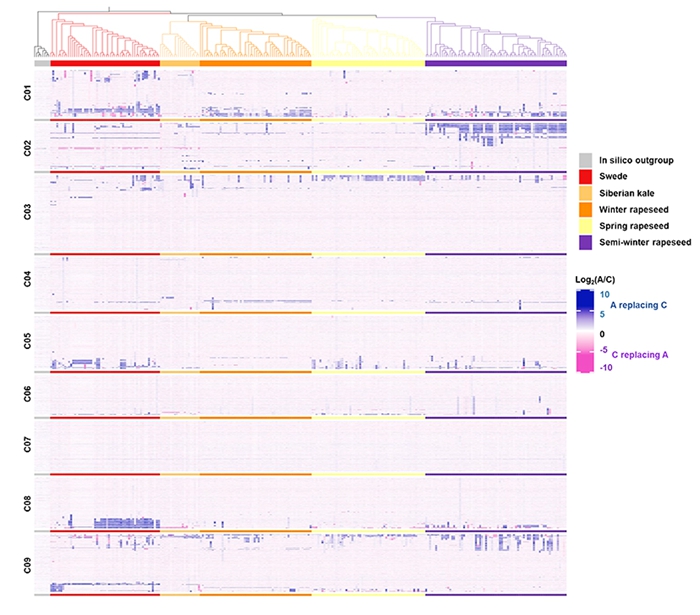
Figure 1. HE Characterization Map of B. napus Population
This study analyzed whole-genome resequencing data from various morphotypes and ecotypes of the allopolyploid Brassica napus to investigate the role of homoeologous exchange (HE) in its domestication. The results revealed that HE events are widespread across different B. napus populations and individuals and continue to occur during the recent domestication of B. napus (Figure 1). Further analysis showed that HE events not only altered the genome structure but were also associated with trait diversity in different morphotypes and ecotypes, potentially aiding adaptation to various environments and domestication demands (Figure 2).
In particular, the study focused on Swede (rutabaga), assembling a new reference genome and identifying significant HE signals. Swede's genome shows substantial A genome segments replacing C genome segments, suggesting that these A genome segments may have played a crucial role in root enlargement during domestication. Additionally, HE events affected genes involved in flowering time regulation and root development, indicating that HE-modified genomic regions contributed to both nutritional growth and root formation in Swede.
These findings offer new insights into the domestication and trait formation of different B. napus groups, with potential applications for future breeding efforts. Moreover, HE was also observed in another allopolyploid species, B. juncea, where significant selection for HE events was detected, suggesting the broad evolutionary and adaptive significance of HE in polyploid crop domestication.
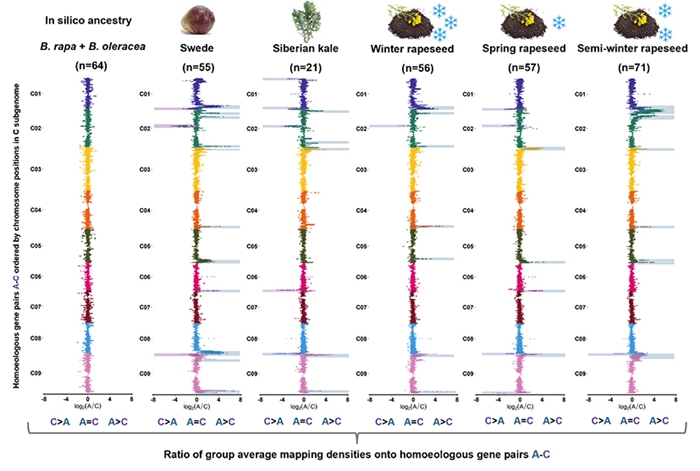
Figure 2. Selection signals for homoeologous exchange (HE) in major B. napus groups.
Tianpeng Wang, a joint Ph.D. student from the Vegetable Molecular Design Breeding Team at the Institute of Vegetables and Flowers, Chinese Academy of Agricultural Sciences, and the Plant Breeding Group at Wageningen University, is the first author of this paper. The study was co-authored by Researcher Xiaowu Wang and Professor Guusje Bonnema as corresponding authors, with contributions from Master's student Ranze Zhao and Professor Aalt D. J. van Dijk from Wageningen University's Bioinformatics Department. The research was supported by the National Key R&D Program (2021YFF1000104), the National Natural Science Foundation of China, the Science and Technology Innovation Project of the Chinese Academy of Agricultural Sciences, the National Key Laboratory of Vegetable Biotechnology Breeding, the Dutch TKI project, and the China Scholarship Council.
Link by https://genomebiology.biomedcentral.com/articles/10.1186/s13059-024-03370-z.
By Xu Cai(caixu@caas.cn)
-
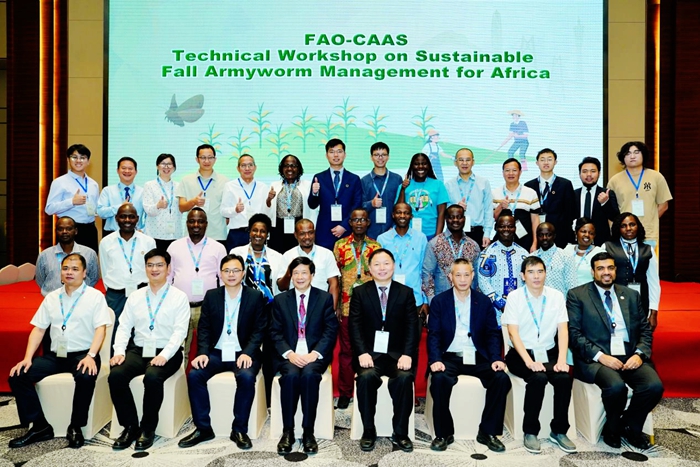 Nov 21, 2024IPPCAAS Successfully Organized the FAO-CAAS Technical Workshop on Sustainable Fall Armyworm Management for Africa in Guangdong
Nov 21, 2024IPPCAAS Successfully Organized the FAO-CAAS Technical Workshop on Sustainable Fall Armyworm Management for Africa in Guangdong -
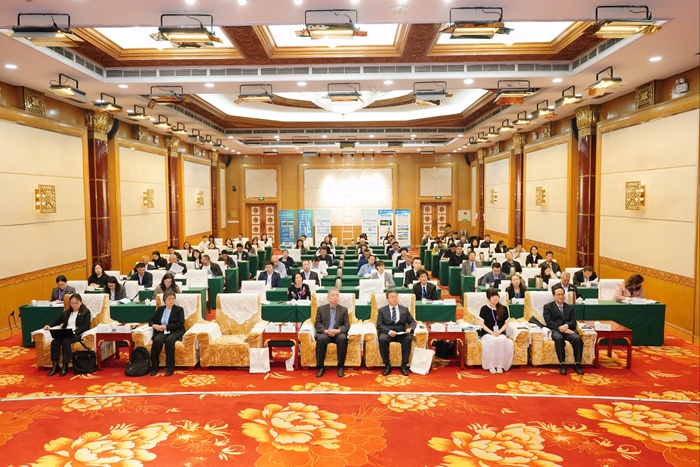 Nov 07, 2024The Policy and Technology Exchange Meeting of Deepening Environmental Cooperation on Dust and Sand Storm Control in Northeast Asia for Green and Sustainable Development co-organized by Institute of Grassland Research, CAAS successfully held in Hohhot
Nov 07, 2024The Policy and Technology Exchange Meeting of Deepening Environmental Cooperation on Dust and Sand Storm Control in Northeast Asia for Green and Sustainable Development co-organized by Institute of Grassland Research, CAAS successfully held in Hohhot -
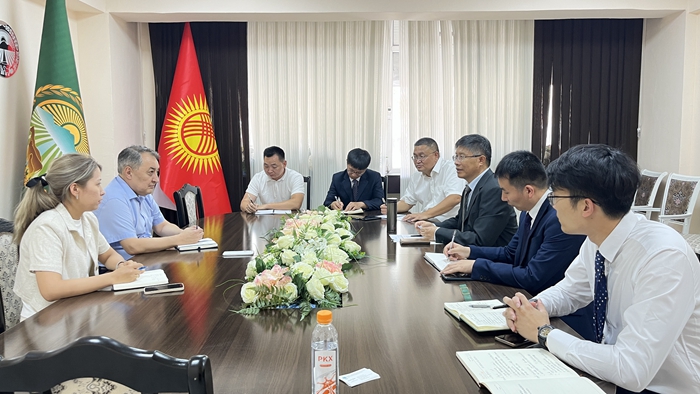 Nov 07, 2024IAED-CAAS delegation visits four Central-Asian countries for scientific cooperation
Nov 07, 2024IAED-CAAS delegation visits four Central-Asian countries for scientific cooperation -
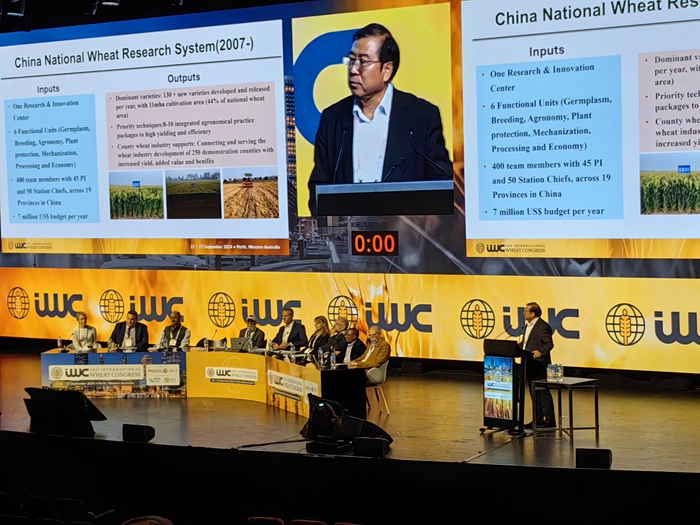 Nov 06, 2024Experts from ICS Participated in the 3rd IWC
Nov 06, 2024Experts from ICS Participated in the 3rd IWC -
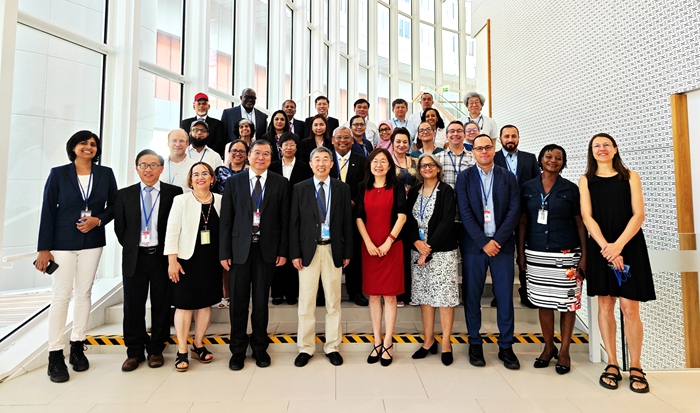 Oct 24, 2024Prof. Luxiang Liu Renewed His Term as the Chairman of the Mutation Breeding Network (MBN)
Oct 24, 2024Prof. Luxiang Liu Renewed His Term as the Chairman of the Mutation Breeding Network (MBN)
